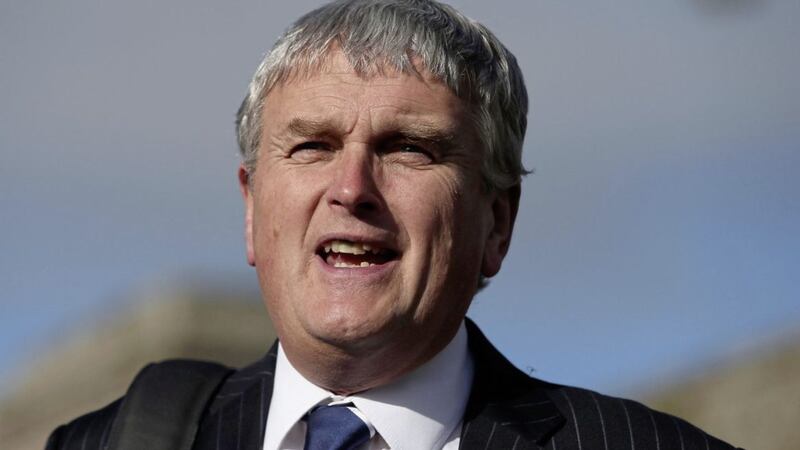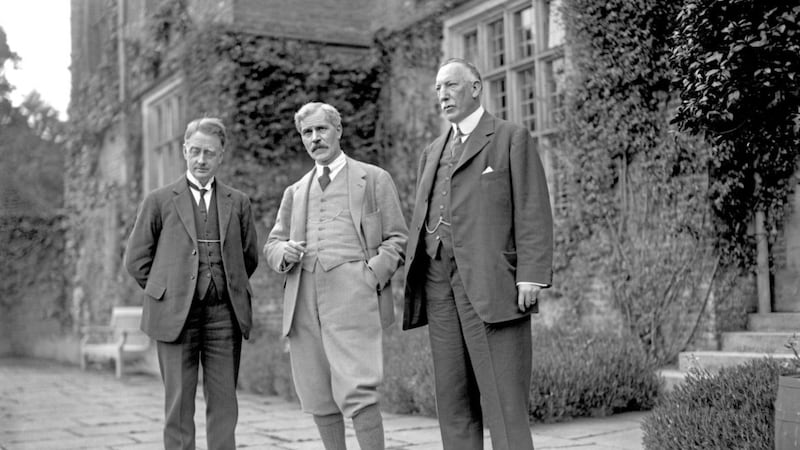When the Democratic Unionist Party was founded in September 1971 (‘right wing in the sense of being strong on the constitution, but to the left on social policies’) it was clearly a party of protest against the ‘big house unionism’ of the Ulster Unionist Party.
For Ian Paisley it was also a party of protest against the ‘creeping secularism and ecumenism that the liberals of established unionism were turning their eyes from.’
Over the next 25 years it narrowed the electoral gap with the UUP. When the Stormont parliament was closed in 1972 the DUP had 3 members. In the 1973 Assembly election it won 8 seats. In the 1975 Convention election it won 12. In the 1982 Assembly election it took 21. And in the 1996 Forum elections it was up to 24. Even though it continued its electoral progress it looked as though the party was never going to displace the UUP as the lead voice of unionism. And that’s because there was a wing of unionism—not all of it liberal, either—which could never bring itself to vote for the DUP.
But the rise of Sinn Féin from 1996 onwards, and the destructive civil war within the UUP over the Good Friday Agreement, pushed that wing of unionism, along with many life-long UUP supporters, into the arms of the DUP. In the Assembly elections in November 2003 the DUP finally nudged ahead of the UUP in both seats and votes; and by March 2007 it had become the majority voice of unionism. The party of protest had, after 35 years, found itself at the centre of power.
Ten years on and we’re beginning to see some of the internal tensions that can cause enormous problems for a party at the centre of power. There have been accusations of arrogance—particularly in the wake of the RHI saga. There are clear divisions on Irish language; moving from a never-never-never stance to a much more nuanced position embracing Ulster-Scots. While there is clearly nothing resembling a spectacular shift on the approach to same sex marriage, it is equally clear that there is an internal debate taking place. A few years ago the party would have come down hard on any elected representative who seemed to have gone ‘soft’ on the issue (or the issue of homosexuality in general) and then dispatched a big hitter to tour the studios and confirm the party’s ongoing opposition. That’s not happening now.
In June the DUP had one of its best ever results, with almost 300,000 votes. It needs to keep building—keep widening the gap with Sinn Féin and lessening the likelihood of a border poll any time soon. But it also wants the Assembly up and running again; partly to keep the payroll vote happy and partly to ensure that when Northern Ireland’s centenary is celebrated in 2021 there are devolved institutions in which they remain the largest party.
But for that to happen they need Sinn Féin to agree: although, as I noted in a column a few weeks ago, I’m not convinced Sinn Féin is particularly concerned about devolution any more. That aside, any DUP/SF deal will require the DUP to shift on Irish language and same sex marriage in particular; and on a few other social/moral issues as well. So right now the DUP will be doing the calculations.
With 300,000 or so voters it is inevitable that a few thousand will be gay or will have members of the family who are gay. And there are thousands more who won’t have any particular hang-ups about the issue. But set against that the DUP still has a hardcore evangelical wing—there from the earliest days—who place ‘God’s Law’ above and beyond everything else. The equality agenda means nothing to them. They regard homosexuality has an abomination: in other words, it can never ever be right. How would they react if the DUP were seen to soften its attitude? How many of them would support Jim Wells, who, if I’m correct, would regard a softening of approach as a resignation issue?
If there was a gap of 80,000-plus between the DUP and SF then it’s possible that the DUP would take an electoral risk. Yes, they would lose some votes, but not enough to do any major damage. They had taken the same sort of risks between 1998 and 2007 when they cut a deal with SF; and in 2008, when they refused to cut a deal to keep Jim Allister on board. They took another one in 2015 when they didn’t collapse the Assembly after a report appeared to confirm the continuing influence of the IRA army council. They also know that the UUP won’t outflank them on the right or left; and know, too, that some of their hardcore would prefer to hold their noses and keep voting for them rather than see SF become the largest party.
My reckoning is that the DUP will be shifting on some key issues and maybe sooner than we think. But they won’t do it without a thorough internal review and calculation. And they won’t do it if they feel they’re being unduly pressurised. The party has proved that it can change direction. It will do so again.








